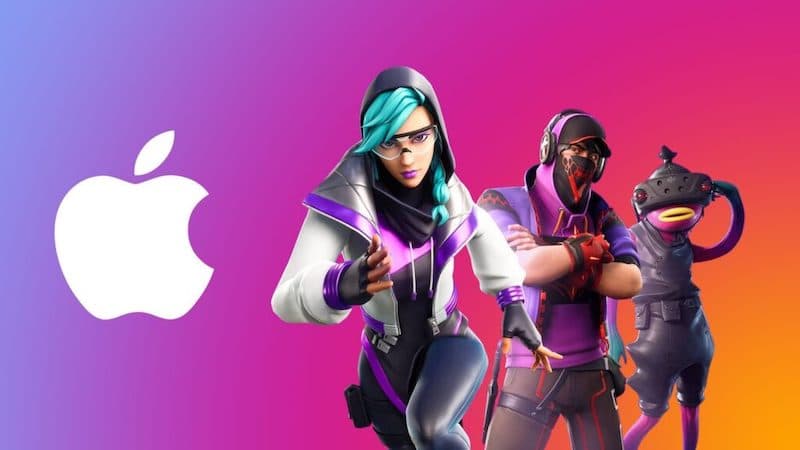The court has finally ruled on the Epic Games-Apple controversy.
And the judges, in the trial that began last May, agreed with Epic. In short, Tim Cook’s company will not be able to prohibit the apps in the Store from referring to external payments.
Let’s retrace the salient moments of the long trial and pause in more detail on the outcome, at least momentary, of a sensational sentence.
The Epic Games-Apple trial: the beginning of the clash
It all started even in August 2020.
Epic Games is a North Carolina company that develops video games, including the very successful Fortnite.
One fine day last summer, the top management of the company decide to ignore the rules, mandatory for all developers, in force on in-app payments of the Apple Store. Like? Allowing direct purchase of Fortnite virtual money. In this way the gamers, by paying directly, would have saved the 30 percent commission imposed by the Store.
Apple didn’t exactly take it well – it blocked the Fortnite app on all devices in use.
Ball back to the North Carolina company, which certainly did not think about lowering the level of the clash. Indeed, in a nutshell Epic Games took Apple to court for unfair competition. And with a bit of healthy irony, he reworked the legendary Apple video of 1984 by replacing IBM with (in fact) the Cupertino company in the role of Big Brother.
The process
The (public) Epic Games-Apple trial began months later, exactly on May 3, in an Oakland federal court.
Epic’s accusation against Cook’s company is that of taking advantage of the monopoly position in order to create a closed market through a “predatory attitude”.
Apple defended itself by explaining how the conditions, which may appear restrictive, are designed to safeguard the privacy of anyone who uses the Store, developers and users.
In addition, Michael Schmid, head of Apple’s gaming division, said that during the eleven months of Fortnite’s stay in the Store, the Cupertino company would often have an incredible $ 100 million for the marketing campaign.
Apple’s countermeasures
From the first tensions between Epic Games and Apple, the Cupertino giant has made at least two moves that are at least cunning.
In the meantime, the company has promoted a study in order to demonstrate that the commissions requested by the Store are not higher than the average of those of the reference market. We are talking about a platform that hosts some 1.8 million apps.
In addition, Apple has created the Small Business Program, according to which the commission paid by developers who earn less than a million dollars a year drops from 30 to 15%. We also remind you that the transition from 30 to 15% was already foreseen (after the first year) for developers who sign a multi-year contract.
Two measures, perhaps, designed precisely in anticipation of the trial against Epic Games.
Korea’s unexpected role
The Epic Games-Apple clash, in recent days, seemed to be coming to an end in a bizarre way.
South Korea, in fact, has recently approved the Telecommunications Business Act, a law that requires tech giants to allow developers to use different payment systems.
Ed here is the back and forth in that regard: “Epic intends to relaunch Fortnite on iOS in Korea by offering both Epic payment and Apple payment, in accordance with the new Korean law”.
But Apple retorted: “As we’ve always said, we would be delighted with Epic’s return to the App Store if they agreed to play by the same rules as everyone else. Epic has admitted violating the contract and, at the moment, there is no legitimate basis for restoring your developer account ”.

The sentence
A short distance from this possible solution to the Epic Games-Apple conflict, here comes the sentence pronounced by the judge Yvonne Gonzalez-Rogers.
The judge issued a permanent injunction that will be enforceable 90 days after the sentence, or December 9, unless appealed by Apple. That it will no longer be able to “prohibit developers from including buttons, external links, or other calls to action in their apps and metadata that direct customers to purchase mechanisms, in addition to In-App purchases. And to communicate with customers through contact points obtained voluntarily by customers by registering the account within the app “.
But the ruling also gives Apple two partial wins. The first is the failure to recognize a monopoly situation. Furthermore, Epic Games, guilty of violating Apple’s contract, will have to pay 30% of the revenues, equal to 3.5 million dollars.
Epic Games goes on appeal
The sum to be paid for the breach of the contract, together with the fact that the judge did not completely cancel the possibility of making in-app purchases, have pushed the North Carolina company to appeal, asking the Court of Appeals to review the case.
The battle already over a year long, therefore, still seems far from the end credits.
Apple’s comment
If Epic Games is silent, Apple immediately commented (perhaps reworking it a bit) on the ruling. “Today the court affirmed what we knew from the beginning: the App Store does not violate antitrust laws. Apple faces rigorous competition in all segments in which it does business. And we believe that customers and developers choose our products and services because they are the best in the world. We remain committed to ensuring that the App Store is a safe and trustworthy market. “













Leave a Reply
View Comments